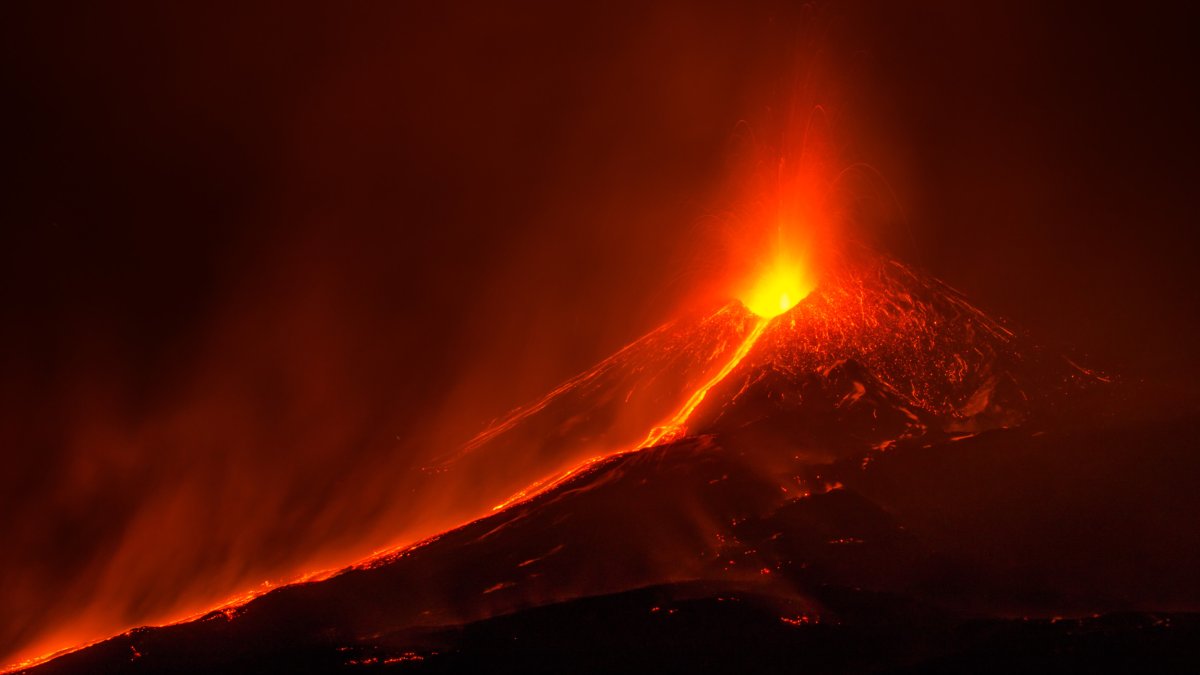The most active volcano in Europe has started erupting, and members of the public can watch it live.
Mount Etna, on the east coast of Sicily, began erupting on Saturday night, spewing fountains of lava, the National Institute of Geophysics and Volcanology, Etna Observatory, reported in an update.
The Etna Observatory documents the volcanoes eruptions live here, where people can watch it in real time. Sometimes, the picture is not clear depending on the volcano's activity. But sometimes the camera is aglow with the volcano's lava.
In an update issued on August 14, the National Institute of Geophysics and Volcanology reported that lava fountains spewing from the southeast crater caused a huge volcano cloud that drifted south, producing ash fallout.

Lava fountain activity increased during the night of August 13. There have been no reported injuries during the eruption.
Etna is the largest of three active volcanoes in Italy. It has frequent eruptions, which are rarely deadly or dangerous to surrounding communities. The volcano has killed 77 people in its history. As its craters are so high, its eruptions tend to be far enough away from any communities to cause damage.
However, the most recent eruption has caused extreme air traffic disruption.
Raining ash has caused all flights from the nearby Catania and Comiso airports to be delayed or canceled until it is deemed safe. This is the main danger this volcano can cause because volcanic ash particles can have extremely severe effects on plane operations.
Volcanic ash poses a serious risk to aircraft, as it contains particles that are at a melting point below the engine's own temperature. If these ash particles enter an aircraft's engine, they will melt. This can cause engines to fail. The ash also causes poor visibility for pilots.
It is not uncommon for Etna to erupt. It has been erupting on and off for years, and records date back as far as 425 B.C. Its last eruption in May resulted in the disruption of dozens of flights into and out of the island.
In an eruption in 2017, 10 people were injured from steam and lava.
Other volcanoes in Italy include Stromboli, also in Sicily, and Vesuvius, close to Naples, famed for blanketing the ancient city of Pompeii in ash.
Do you have a tip on a science story that Newsweek should be covering? Do you have a question about volcanoes? Let us know via science@newsweek.com.
Uncommon Knowledge
Newsweek is committed to challenging conventional wisdom and finding connections in the search for common ground.
Newsweek is committed to challenging conventional wisdom and finding connections in the search for common ground.
About the writer
Robyn White is a Newsweek Nature Reporter based in London, UK. Her focus is reporting on wildlife, science and the ... Read more
To read how Newsweek uses AI as a newsroom tool, Click here.





